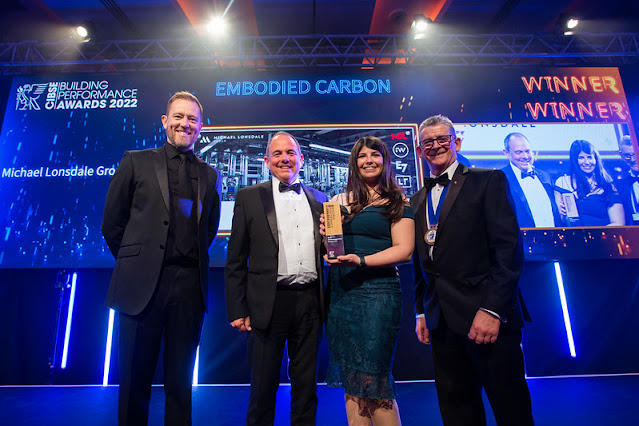Beyond compliance
As part of a CIBSE Certification briefing on ISO 50001, Deon Joubert of Kingspan gave a presentation on his company's efforts to implement an energy management system. Prof. Andrew Geens, head of certification at CIBSE, was at the briefing and gives us his thoughts on what the Group had learned from employing energy management.
Thanks, in part, to some vigorous lobbying by organisations
like RICS, the Edge, CIBSE and others, energy efficiency is on the upward curve
of its cycle. To address the trilemma of security of supply, affordability and
carbon reduction the energy efficiency solution is being acknowledged in
government circles.
In addition to the £730 million support for offshore wind
and other renewables announced in Wednesday’s budget, or longer term plans to build
non-renewable capacity, the Government is increasingly bringing energy efficiency
in from the cold and giving it a prominent place in its strategy. At
yesterday’s UKGBC ESOS event, someone from DECC made the statement “the
cheapest energy is the energy you don’t use”.
 |
| Uncertainty around the future of UK energy policy keeps the issue in the headlines |
Through ESOS the Government is helping businesses to achieve
their energy efficiency potential by providing a flexible framework for
identifying energy saving opportunities and mandating that larger companies use
it. Even so, there is always the risk of ESOS being put on the back-burner, if managers lose focus on its goals for even a month. This is as a result of seeing compliance as a box-ticking exercise rather than a continuous process of identifying new ways to make savings.
Even so, many companies recognise the multiple benefits of
managing their energy use better, and in this way are ahead of the
Government. During the recent breakfast
briefing “From ESOS to IS 50001” run by CIBSE Certification, Deon Joubert,
Divisional Manager, EHS Compliance of Kingspan Insulation Ltd explained how
their wider push within the group to reach Zero Net Energy by 2020 and join the
Carbon Disclosure Project had helped them with their ESOS compliance.
And this is where a standard like ISO 50001 really comes into its own. In relation to the point above, it's not just another 'fit and forget' energy measure that gets dusted off every four years to show that the requisite boxes are indeed being ticked; it requires monitoring and, as such, provides metrics that are actually useful to an organisation, and can save them money.
As they already had some sited under ISO 50001 certification
from CIBSE Certification, their compliance strategy for ESOS involved a mixture
of ISO 50001 certification and ESOS audits. He also added that Kingspan were
saving a lot of money as a result of their efforts and reminded delegates of
the DECC estimates that if participants in the ESOS scheme reduce energy
consumption by an average of just 0.7%, this would reduce their total energy
bills by over £250m per year.
 |
| Kingspan have more than 100 locations across 16 countries |
Deon explained why Kingspan had already embarked on the ISO
50001 route before ESOS came along. Firstly and most importantly for them was
the uniformity that ISO 50001 brought to energy management across such a large
number of sites. It may seem obvious, but it’s hard to measure progress and
compliance when every site is applying different standards to itself – and
that’s crucial from a financial perspective, when a company’s whole strategy
may rely on the savings made across a portfolio.
Secondly, and less tangibly, is the culture change that the
standard brought with it. An energy management system isn’t just about the
paperwork, humans are part of the system too and their actions need to be
accounted for if the system is to work. Using a certified system like ISO 50001
ensures that it has been tested and proven to work, and enables organisations
to implement something that employees can get behind and engage with. For those
in charge of implementing the system it also serves to formalise the efficiency
process, factoring in capital expenditure to make a proper business case to
those holding the purse strings.
 |
| Savings can only be fully realised if solutions are managed properly |
The three-day course is a mixture of lectures and workshops, and provides 21 hours of CPD. There is an exam for those who wish to become a Low Carbon Consultant (LCC) EnMS; this allows consultants to plan and implement EnMS to ISO 50001.
Visit here to book. Further dates for 2016 will be added around July. For notification of these, email eventbookings@cibse.org
.png)


Comments
Post a Comment